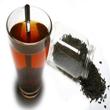
Black tea and other beverages such as green tea and coffee have long been discussed as potential factors in overall health and mortality risk. New data out of the United Kingdom seems to support some of this thinking, particularly for black tea. Here’s the latest.
A recent cohort study of almost 500,000 adults in the United Kingdom, where black tea is the most common tea consumed, shows that drinking at least 2 cups of tea daily is linked with a modest reduction in overall risk of death from any cause, particularly heart disease or stroke. Drinking more than 2-3 cups daily doesn’t seem to offer additional benefits. The average follow-up period in this study was about 11 years, and lifestyle and genetic factors were also considered. The benefits from consuming tea were present regardless of coffee consumption or genetic variants that affect how caffeine is metabolized.
This study has been making headlines because most of the previous research on the benefits of tea has focused on Asian countries, where green tea is most common. This new data from the UK suggests similar benefits for black tea, which is more popular throughout Europe and in the US. As a reminder, green tea and black tea are both made from the Camellia sinensis plant, but they’re prepared differently. Green tea is rich in epigallocatechin gallate (EGCG), which is believed to offer many health benefits, while black tea is a fermented tea that is rich in theaflavins. Theaflavins are believed to have both heart health and anti-cancer effects.
To learn more about the various benefits of teas, check out our green tea, black tea, oolong tea, and pu-erh tea monographs.
The information in this brief report is intended for informational purposes only, and is meant to help users better understand health concerns. This information should not be interpreted as specific medical advice. Users should consult with a qualified healthcare provider for specific questions regarding therapies, diagnosis and/or health conditions, prior to making therapeutic decisions. Copyright © 2024 NatMed. Commercial distribution or reproduction prohibited. NatMed is the leading provider of high-quality, evidence-based, clinically-relevant information on natural medicine, dietary supplements, herbs, vitamins, minerals, functional foods, diets, complementary practices, CAM modalities, exercises and medical conditions. Monograph sections include interactions with herbs, drugs, foods and labs, contraindications, depletions, dosing, toxicology, adverse effects, pregnancy and lactation data, synonyms, safety and effectiveness.
